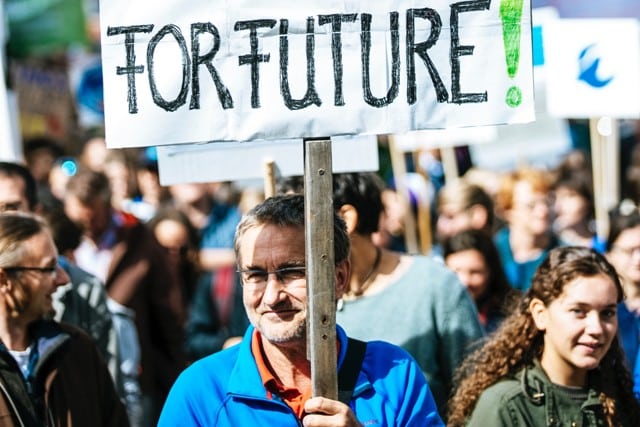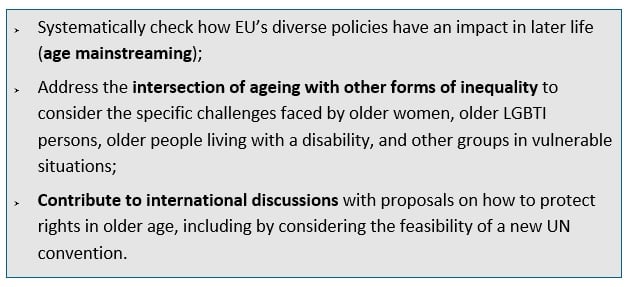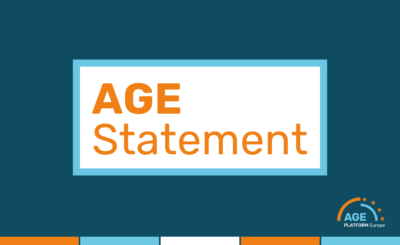
Being treated equally is fundamental for everyone to feel worthy and contribute to society. Even though we are all ageing, we are not all receiving the same protection of our rights. This October, our #AgeingEqual campaign called for change.
For the 1st October, International Day of Older Persons, the United Nations picked the theme of ‘A Journey To Age Equality’, echoing the ambition of its 10th Sustainable Development Goal (SDG) to reduce inequalities. The new European Commission promised to align future European policies with the SDGs. But if the ‘old continent’ wants to benefit from its growing older population, we will have to go beyond the international frames that still fall short on addressing the risks of exclusion and discrimination that older persons face.
Inadequate texts to address ageism
If the Sustainable Development Goals include several references to older persons and people of all ages, their visibility in comparison to other groups at risk of discrimination, like children and persons with disabilities, is still very limited. Likewise, international texts to protect human rights – e.g. the Universal Declaration of Human Rights and the Covenant on Civil and Political Rights – do not refer explicitly to age as a prohibited ground of discrimination. Worse: several exceptions to the rule of age equality are justified in practice.
If there is one thing before which we are all equal, it is ageing. But not all age groups are treated as equals: this needs to change!
Because international human rights law is ill-equipped to tackle ageism, discriminatory measures against older people may be considered as normal or even inevitable. These gaps make the journey to age equality long and difficult.
Agents, not victims!
Older persons decided to be vocal about the need to shift mindsets. For the International Day of Older Persons, members of AGE Platform Europe in Belgium, Germany and Slovenia called for a shift of attitudes towards older age. Participating in the global campaign #AgeingEqual, citizens from all over Europe took action to initiate the change they want to see.
“Population’s ageing is no longer only a matter for us, old people. We have to take advantage of the potential of the intergenerational cooperation with the young for the benefit of all social groups.”
Janez Sušnik, president of ZDUS
Protecting everyone’s rights is the only way to ensure that everyone is given the capacity to contribute to society. Older people, as all other age groups, can help finding the solutions to today’s challenges: defending democracy, limiting climate change, caring for those in need. They already do so; even more would they be able to help if we got rid of ageism!

> Discover good practices that challenge ageism
Three concrete calls for the new Commission
Celebrating older persons as truly equal will require changing our attitudes and policies on ageing. We are calling the EU to adopt an ambitious strategy on demographic change, setting out where local authorities, national governments, and European institutions can make a difference.
The focus of the upcoming European Commission on demography and equality is promising. Just as promising is the commitment of the European Commission’s president Ursula von der Leyen to pass a non-discrimination legislation going beyond the European Employment Directive.
To close the gap in legal protections found across the continent, AGE calls on the EU institutions to:

Read also:
- our Press Release calling for Age Equality for the 1st October
- our Press Release on the European Commission’s Vice-President on Demography
- our article on the need to protect social rights in older age
- our #AgeingEqual campaign blog
Photo by Markus Spiske on Unsplash






